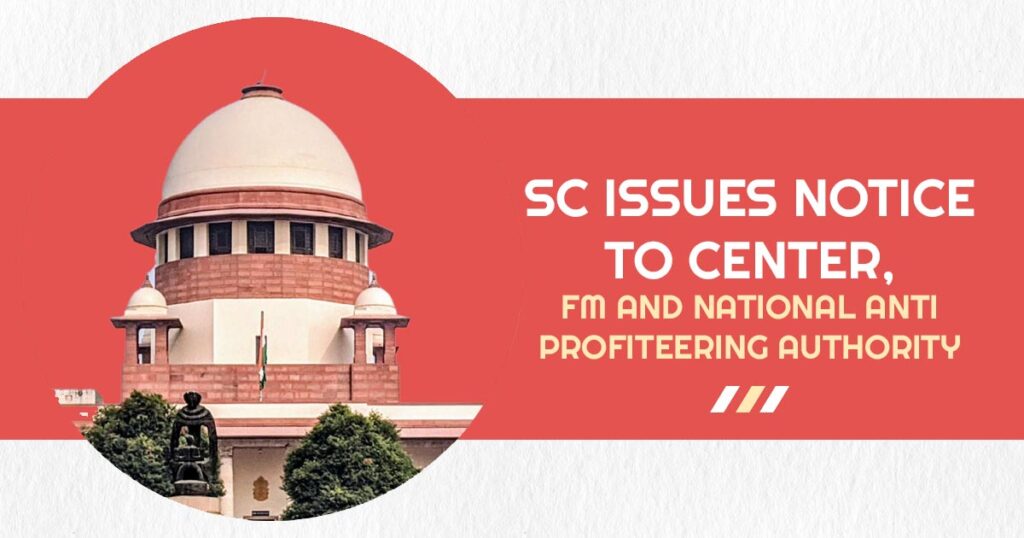
The Supreme Court issued notices to the Central government, the GST Council, the Central Board of Indirect Taxes and Customs, and others concerning the constitutional validity of anti-profiteering provisions under the goods and services tax (GST).
A bench of Chief Justice D.Y. Chandrachud, with Justices J.B. Pardiwala and Manoj Misra, did not issue the prayer for a stay.
The SC witnesses were in reply to a petition contesting the judgment of the Delhi High Court, which had kept the fact of a provision of the Central Goods and Services Tax (CGST) Act requiring that whatever companies save in tax they need to decrease in price.
On January 29, the High Court kept the constitutional validity of Section 171 of the CGST Act, 2017 which mandates that whatever the companies save in tax they should decrease in price.
The High Court, anti-profiteering provisions in the 2017 law, and the affiliated rules are like beneficial legislation since they elevate consumer welfare. Orders pronounced by the erstwhile National Anti-Profiteering Authority (NAA) shall continue to have validity through this.
A setback from the order caused approximately 100 companies like Hindustan Unilever, Nestle Reckitt Benckiser, and others, Dissatisfied with the ruling, Excel Rasayan filed a Special Leave Petition (SLP) in the Supreme Court.
Section 171 of the CGST Act deals with anti-profiteering criteria and specifies that any decline in the tax rate on goods or services supply or the benefit of the input tax credit will be passed on to the receiver through a proportional decrease in prices. Before, complaints were to be filed with the NAA. The task is with the Competition Commission of India (CCI).
In the Delhi High Court, 107 petitions were filed to contest the constitutional validity of the aforesaid section and pertinent rules, including the legality of the notices suggesting imposition or orders imposing penalty issued via the NAA. The applicant companies span diverse businesses, ranging from hospitality and fast-moving consumer goods (FMCG) to real estate.
A division bench including Acting Chief Justice Manmohan and Justice Dinesh Kumar Sharma of the High Court in its judgment, expressed, “The constitutional validity of Section 171 of the Act, 2017, as well as Rules 122, 124, 126, 127, 129, 133, and 134 of the Rules, 2017, is upheld.”
As per the court, it is feasible that there might be cases of random practice of power beneath the process of anti-profiteering. While the remedy for that is to set aside these orders on their merits, the bench held.
Remarking on the rationale for the companies petitioning in the Supreme Court, tax experts mentioned that the intent to start anti-profiteering provisions was to confirm that companies give the advantages of diminished GST rates or increased Input Tax Credit (ITC) to customers. In the past 6 years, the GST Act has increased enormously, leading to a reduction in the frequency of modifications, especially in the rates of GST.
NAA officers secure the particular facts of GST provision, CCI authorities do not have this expertise. The lack of standardized procedures for anti-profiteering makes the whole practice discretionary and indefinite. “As a consequence, the industry is pursuing recourse in the Supreme Court to contest the lack of specific time limits and the absence of guidelines or strategies in these special provisions,” he stated.